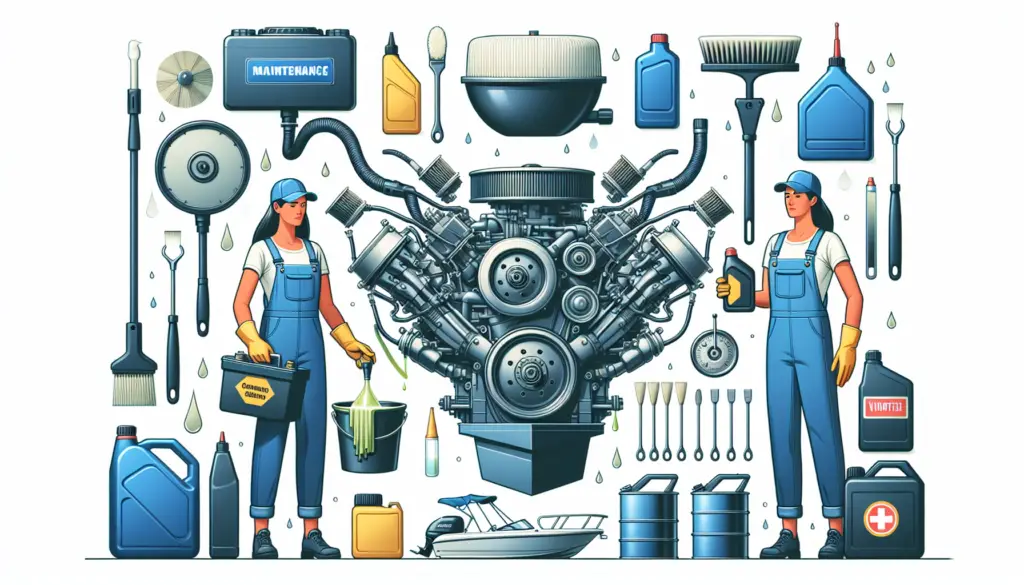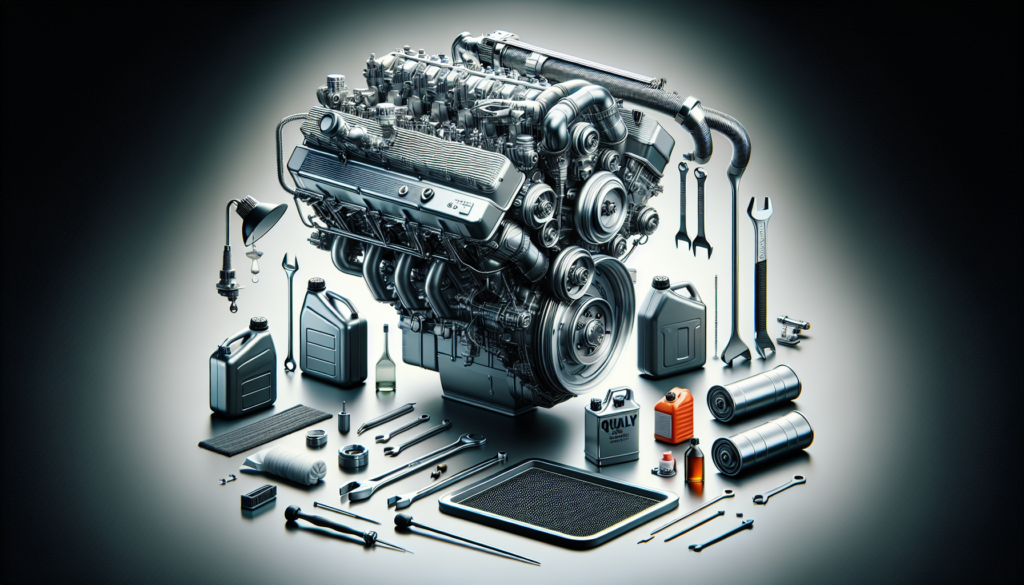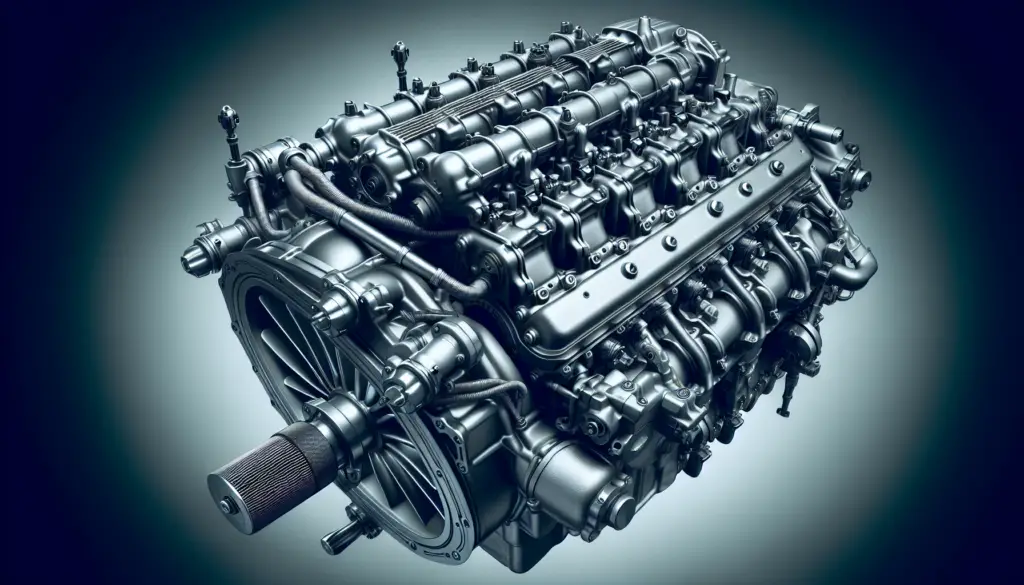A boat lover knows the joy of a good sailing experience is only as delightful as the state of the boat’s engine. When you have the article “The Best Ways To Keep Your Boat Engine Running Smooth And Quiet” as a guide, your boat will not only run without any hitches but will also remain impressively soundless, enhancing your sailing escapades. This article lets you in on the secrets of maintaining a well-functioning and nearly silent boat engine so you can be the captain of a well-oiled machine out on sea, ensuring a tranquil, effortless ride every time.
Understand Your Boat Engine
Understanding your boat engine is the first step towards ensuring it runs smoothly and quietly. Investing time in understanding your engine will allow you to take better care of it, tackle minor issues yourself, and make more informed decisions when professional help is needed.
Know the basics of how a boat engine works
Every boat enthusiast should have a basic understanding of how boat engines work. Essentially, boat engines convert the chemical energy contained in fuel into mechanical energy. This mechanical energy powers the propeller, which propels the boat forward. While there are many different types, most boat engines work on this same principle.
Learn about common problems and solutions
Knowing the common problems that can arise with boat engines and their solutions will save you time, money, and hassle. For instance, if your engine is not starting, it could be due to a discharged battery, a faulty ignition switch, or a damaged starter motor. Each of these problems has a different solution, and knowing them can help you get your engine up and running faster.
Get familiar with your specific engine type
Lastly, it’s important to familiarize yourself with the specifics of your boat’s engine type. Whether outboard, inboard, or sterndrive, each has its unique features, benefits, and maintenance needs. Understanding these nuances will make a big difference in keeping your boat running smoothly and quietly.
Regular Maintenance
Routine maintenance is paramount to prolonging the life of your boat engine. It allows for early detection of issues and prevents minor problems from escalating into major ones.
Importance of routine checks
Routine checks are your first line of defense against potential issues. They allow you to keep an eye on all the important parts of the engine, ensuring everything is running as it should be. Not only does this prevent unexpected breakdowns, but it also gives you peace of mind every time you get on the water.
Create a maintenance schedule
Creating a maintenance schedule based on your boat engine manufacturer’s recommendations is key to ensuring all necessary tasks are carried out when they need to be. This could include checking the oil level, inspecting the condition of the spark plugs, or replacing the fuel filter. Stick to your schedule, and your engine will thank you.
Practical tips for ongoing maintenance
Practical tips for ongoing maintenance include cleaning your engine regularly, draining the fuel system when necessary, and not ignoring minor issues. Remember, small problems can turn into big issues if they are not addressed timely and correctly.

Proper Engine Lubrication
Lubrication is vital to keep your boat engine running smoothly. Lack of lubrication can result in increased friction among parts, which damages them over time and decreases engine performance.
Selection of the suitable oil
Selecting the right oil for your engine type and the conditions in which you operate your boat is crucial. Synthetic oils are usually a safe choice as they offer good performance in a range of conditions. However, always refer to your engine’s manual or consult a professional if you’re unsure.
The role of oil in engine performance
Oil is more than just a lubricant. It also cools the engine by absorbing heat, cleans it by picking up dirt and debris, and helps seal the gap between the piston rings and cylinder walls. Thus, keeping the oil levels appropriately high is integral to engine performance.
Frequency and process of oil changes
Oil should be changed regularly to maintain its effectiveness. The frequency depends on how often you use your boat and the type of engine it has. Generally, you should change the oil every 50-100 hours of operation or at least once a year. Ensure that you follow the proper process for changing oil: Drain the old oil, replace the filter, and refill with new oil up to the indicated level.
Fuel System Care
Caring for your engine’s fuel system is equally important. Proper fuel care can prevent a multitude of problems such as poor engine performance, decreased fuel efficiency, and engine breakdown.
Understanding the fuel system
The fuel system includes the fuel tank, pump, filter, lines, and injectors. Its primary role is to store, deliver and mix the fuel with air, ensuring your engine gets the right mixture to run efficiently.
Keeping the fuel clean and fresh
Keeping your fuel clean and fresh is essential. Stale fuel can lead to a build-up of gunk in your fuel system, affecting engine performance. To keep your fuel fresh, use it within 3 months of purchase, or add a stabilizer if you plan to store it longer.
Addressing common fuel-related problems
Common fuel-related problems include clogged fuel filters, damaged fuel lines, and water in the fuel. Regular checks and maintenance can prevent most of these issues. However, if you experience problems, diagnosing and fixing them early will prevent further damage.

Effective Cooling System
The cooling system plays the vital role of preventing your engine from overheating. Hence, taking care of it is imperative for the overall health and longevity of your boat engine.
The importance of engine cooling system
A boat engine’s cooling system is responsible for regulating the engine’s temperature, preventing overheating, and keeping it running at optimum efficiency. Overheating can cause severe damage to the engine, which can be costly and time-consuming to fix.
Maintaining the water pump and coolant levels
Maintaining the water pump and checking the coolant levels are two essential aspects of cooling system maintenance. Ensure that the impeller in the water pump is functioning properly and replace it every 2-3 years or if you notice any signs of wear. Similarly, regularly check your coolant levels and top them up when needed.
Dealing with overheating issues
Overheating issues should be addressed immediately to minimize engine damage. If your engine is overheating, shut it down and let it cool before inspecting it. It could be due to a broken impeller, blocked cooling passages, or low coolant levels. These can usually be rectified with a bit of DIY, or for more complex issues, enlist the help of a professional.
Battery Maintenance
Your boat’s battery is also critical to its smooth running. A poorly maintained battery can lead to a multitude of engine issues.
Why battery health matters
Good battery health is crucial for reliable engine start-ups and running the boat’s electrical systems. A failing battery can leave you stranded out on the water or cause inconsistent engine performance.
Regular battery checks and replacements
Regular battery checks can help you avoid unexpected battery failure. Look for signs of wear and tear, check for any corrosion on the terminals, and ensure the battery is secured tightly. Most boat batteries have a life expectancy of 3-5 years, but your usage and maintenance can extend or shorten this lifespan.
Troubleshooting battery problems
Common signs of a battery problem include difficulty in starting the engine, dim lights, and the need to charge the battery frequently. If you experience any of these, it might be time for a battery replacement. If problems persist after replacing the battery, you may need to look into the alternator or the boat’s electrical system.

Handling Corrosion and Rust
Corrosion and rust are the enemies of any boat engine. If left unchecked, they can severely shorten an engine’s lifespan and performance.
The danger of corrosion and rust to boat engines
Corrosion and rust inherently pose dangers to boat engines. They can eat away at critical parts, causing them to fail. This can lead to costly repairs and even potential safety hazards.
Preventive measures against rust
You can take several preventive measures against rust. Regularly clean your engine with fresh water, especially after boating in salt water. Use anti-corrosion sprays and make sure to store your boat in a dry, well-ventilated area.
Addressing existing corrosion
If you notice corrosion or rust on your engine, take action immediately to prevent further damage. Depending on the severity of the corrosion, solutions can range from a simple cleaning to parts replacement. Regardlessly, addressing the issue promptly will save you from more serious problems in the future.
Proper Storage Practices
How you store your engine when it’s not in use significantly affects its longevity and performance.
Why storage matters to engine longevity
Proper storage wards off unnecessary damage and wear to your engine. It protects against the elements, prevents rust and corrosion and helps deter vermin that could chew through wiring or hoses.
Ideal storage conditions
Ideal storage conditions for a boat engine include a dry, ventilated, and temperature-controlled environment. It should also be secured or covered to protect it from dust, grime, and pests.
Preparation process before long-term storage
Before long-term storage, prepare your engine by giving it a full service: change the oil, drain the fuel system, remove the battery, and apply anti-corrosion spray. Taking the time to store your engine properly can save you from a host of problems when you next take your boat out on the water.

The Need for Regular Engine Tuning
Regular engine tune-ups can drastically improve the performance and lifespan of your boat engine.
What happens during an engine tune-up
During a tune-up, different parts of your engine are inspected, cleaned, and replaced if necessary. This typically includes the spark plugs, fuel filters, air filters, and the fuel-injection system. The aim of a tune-up is to restore your engine to its top condition.
Symptoms of an out-of-tune engine
Symptoms of an out-of-tune engine might include reduced power and performance, increased fuel consumption, abnormal combustion noises, or difficulty in starting the engine. If you observe any of these signs, it might be time for a tune-up.
Professional vs. DIY tuning
While some boat owners are comfortable tuning their engines themselves, it’s not recommended unless you’re confident in your abilities and knowledge. Professional tune-ups are typically more thorough and can catch and address issues that you might miss.
Safe Boating Practices
Lastly, adopting safe boating practices will help ensure the longevity and proper functioning of your boat engine.
Adopting boating habits that protect the engine
Adopting good boating habits such as respecting the load limit of your boat, operating at safe speeds, and avoiding abrupt throttling can all help protect your engine and increase its lifespan.
Understanding load and capacity limits
Overloading your boat can strain the engine, reduce fuel efficiency, and even pose a safety hazard. Always be aware of your boat’s load and capacity limits and ensure you’re not exceeding them.
Mindful operation to control noise levels
Mindful operation involves controlling noise levels, which can be beneficial for both your engine’s health and for maintaining a quiet, serene experience out on the water. Avoid abrupt revving and excessive idling, and try to maintain a steady speed whenever possible to keep noise to a minimum.
Your boat engine is your gateway to fun and relaxation on the water. Adopting proper maintenance practices, understanding how it operates, and treating it with respect will help ensure that it’s always ready to take you on your next adventure.

